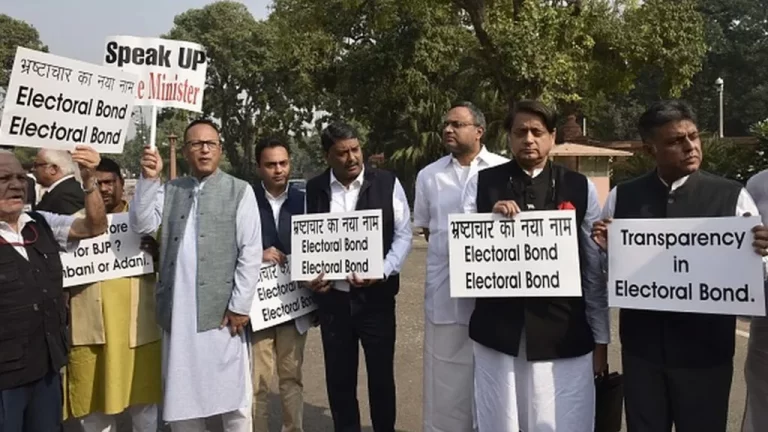A lottery company has topped a list of India's leading political donors.
Donations were made under an electoral bonds scheme that allowed anonymity for people and companies. Future Gaming and Hotel Services emerged as the largest donor, acquiring bonds worth at 13bn rupees ($156.7m, £123m) from April 2019 to January 2024.
The ruling Bharatiya Janata Party (BJP) was the biggest beneficiary, securing almost half of the bonds worth 120bn rupees donated between 2018 and 2024.
Prime Minister Narendra Modi's government had launched the electoral bonds scheme in 2018. While the government had claimed the scheme would make political funding more transparent, critics say it did the opposite instead and made the process more opaque.
Last month, India's Supreme Court banned the scheme, calling it “unconstitutional”, and ordered the Election Commission to disclose donation details to the public. Consequently, the government-run State Bank of India (SBI) was instructed to disclose bond data to election officials.
Under the scheme, donors could buy the bonds in fixed denominations – 1,000-10m rupees (about $12-$121,000; £9-£94,182) – from branches of the SBI and give them to political parties to be encashed.
Data released by the Election Commission shows that India's biggest lottery company, an infrastructure giant, major mining groups and telecom companies were among the top donors on the list. The political party to receive the second highest amount of donations via the bonds was the West Bengal's regional All India Trinamool Congress (TMC) which received 16bn rupees.
The opposition Congress party received 14bn rupees. Mining companies – Vedanta Limited, Rungta Sons Private Limited, Jindal Steel and Power (JSPL), Essel Mining and Industries Limited (EMIL) and Dempo – together bought bonds worth 8.2bn rupees.
The spokesperson of the main opposition Congress party alleged that the data revealed the BJP's corruption.
“There are many cases of companies that have donated electoral bonds, and immediately afterwards gotten huge benefits from the government,” Jairam Ramesh wrote on X, formerly Twitter.
He also said the data provided only began from April 2019 while the first tranche of bonds were sold in March 2018. “Where is the data of these missing bonds, from March 2018 to April 2019?” he asked. On Friday, the Supreme Court told the SBI that it would have to disclose the unique numbers of electoral bonds, revealing the link between donors and political parties.
— CutC by bbc.com


